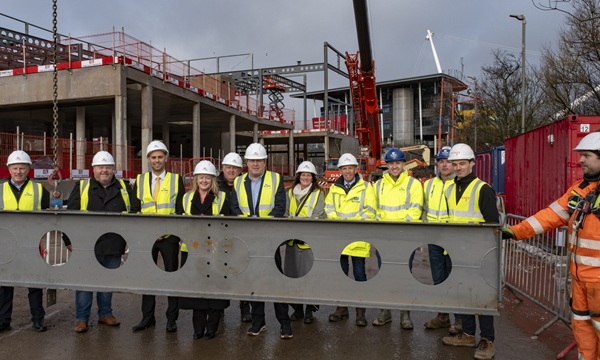
GUEST COLUMN:
Tom Molyneux-Wright
Associate Director
DPP

Speaking at the Royal Town Planning Institute (RTPI) Cymru Planning Conference last month, Rebecca Evans MS, Cabinet Secretary for Economy, Energy and Planning, outlined how the Welsh Government is taking action to streamline the planning process, address resource challenges, and build a modern, efficient planning system fit for the future.
The Cabinet Secretary said:
“An efficient planning system is essential for creating the homes, jobs and infrastructure Wales needs, while also enhancing our environment and strengthening our communities. I am determined to make Wales the fastest country in the UK to determine infrastructure applications. This ambition extends to all planning applications, recognising that this will drive economic growth across our nation.”
What’s Changing?
Draft Planning (Wales) Bill
The Draft Planning (Wales) Bill (‘the Planning Bill’) and its explanatory notes were published in June 2025. The Cabinet Secretary confirmed the Bill is near-final, with plans to introduce it into the Senedd in September 2025 to member scrutiny.
The Planning Bill aims to consolidate existing legislation relating to planning in Wales. This includes bringing together the main planning Acts and relevant subordinate legislation into a single bilingual Act. The purpose is to modernise the structure and language of planning law, making it easier to understand and apply.
Planning legislation in Wales has traditionally been derived from UK-wide Acts, many of which are decades old and have undergone repeated amendment. The result is a fragmented, complicated legal framework, mostly only available in English, that makes it harder to determine which laws apply in Wales. In response, Welsh Government asked the Law Commission to review the state of planning law. The Commission’s conclusion was clear: the law needs urgent work to make it simpler and more consistent.
While the structure and wording of the law will change, the legal effect will remain the same. This is a consolidation effort, not a reform of planning law. Greater clarity and accessibility are essential for anyone working with or within the system, so these efforts are to be welcomed.
Planning Reforms
We also heard about a number of key measures being introduced by the Welsh Government to accelerate decision making and support the planning profession:
Funding:
Nearly £9 million of direct investment will go into Planning and Environment Decisions Wales (PEDW), Natural Resources Wales (NRW) and the Welsh Government’s Planning Directorate. This funding aims to strengthen capacity and deliver faster decisions.
Increasing Planning Application Fees:
Planning fees have long lagged behind actual costs. The forthcoming increase, expected by year-end, will be to full cost recovery and is designed to create a feedback loop with higher fees directly reinvested into the sector.
Annual Fee Increases to Track Inflation:
From April 2027, planning fees will be indexed annually to inflation, based on the previous September’s Consumer Price Index (CPI).
North Wales Infrastructure Delivery:
The Welsh Government will fund two new senior planner roles to support infrastructure projects via an expanded North Wales Shared Planning Service.
Bursaries:
A new Town Planning Bursaries scheme is being launched through the Pathways to Planning Programme, with Welsh Government covering the cost for graduates to obtain a postgraduate qualification. We were told these bursaries will be available in this financial year.
Workforce Planning:
The Cabinet Secretary has commissioned RTPI Cymru to undertake in-depth workforce planning research to develop a clear picture of capacity, resourcing, and skills needs across the public sector.
Digital Public Services:
The Centre for Digital Public Services is leading several initiatives aimed at improving engagement with the planning system. This includes streamlining communication between planning authorities and the public, enhancing user experience, and establishing digital standards for sharing information.
The changes outlined represent a welcome change towards equipping local authorities with the resources and tools they need to manage the high volume and complexity of planning applications. Discussions with DPP clients show support for increased fees, provided the additional income is ringfenced to improve the efficiency and capacity of planning services. A well-resourced planning system, capable of delivering timely and robust decisions, can play a pivotal role in attracting investment and supporting sustainable growth in Wales. These measures mark an encouraging shift in the right direction.












